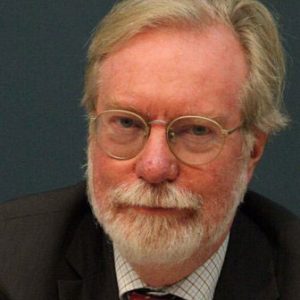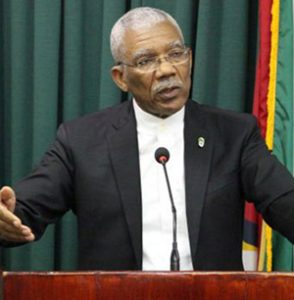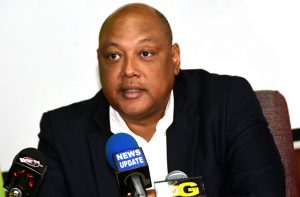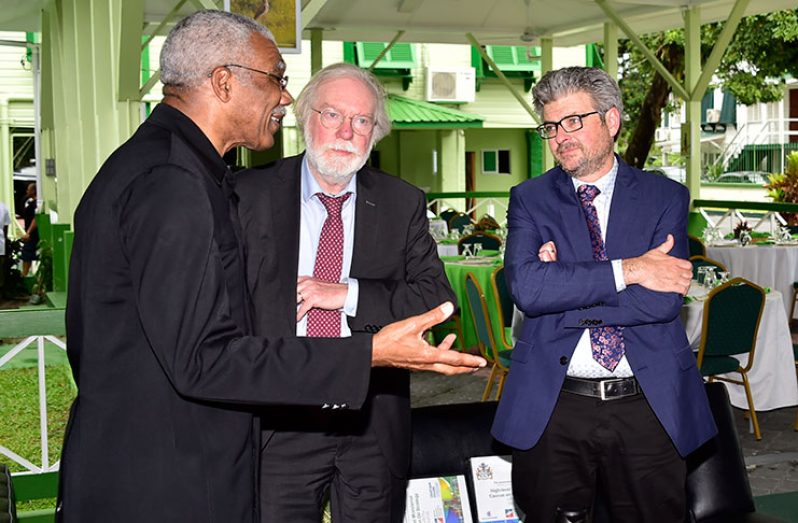— President Granger lays out vision for oil-and-gas sector
GUYANA has to “walk on two legs”, said President David Granger, as he drove home the point for preservation of the Green State and ensuring that oil production benefits current and future generations.
He expressed these sentiments at the opening of a special high-level Cabinet caucus on oil at State House on Tuesday.
“We need to educate ourselves as a Cabinet, as a government and as a population as a whole, to take a sober approach to the exploitation of this valuable resource. We need to create the organisation, the structure that will manage this resource,” the President said.
He added: “This is going to be the single largest industry in Guyana…. We need to ensure that our resources are mobilised, so that every Guyanese understands the importance of petroleum… We have to understand that this industry from the start is Guyanese.”

Also critical, the President said, is investment in education, development of administration and legislation to protect Guyanese from the adverse aspects of exploitation of the oil resource.
The high-level forum was also addressed by Sir Paul Collier, professor of Economics and Public Policy in the Blavatnik School of Government, University of Oxford.
He is also a director of the International Growth Centre, the director of the Centre for the Study of African Economies, and a fellow of St Antony’s College, Oxford.
The Oxford University Economics professor commended President Granger for his vision for the impending oil-and-gas sector, specifically the plan for establishment of the Sovereign Wealth Fund.
Trusteeship and prudent management, Sir Paul noted, are indicators that the government has begun on the ‘right foot’ in relation to its preparatory measures.
He also advised the government that the oil-and-gas sector revenues be transformed into assets for future economic development.
STRONG FOUNDATION
According to Sir Paul, transforming oil, gas and mineral wealth into sustainable development requires a complete chain of economic decisions and strong foundations of good governance.
In the local context, the expert said, these decisions span a number of ministries, each having a role to play in the process.
Guyana, he noted, has a unique opportunity of ‘getting it right’ by employing a simple strategy of how the money accrued will be utilised for creating jobs and other opportunities for its people.
He cited the example of Norway and Britain, with Norway investing in assets and having a successful industry, while Britain did not and failed.
Guyana can learn from the experiences of these countries, Sir Paul emphasised, noting that good decision-making rests on a foundation of rules, institutions, a critical mass of informed citizens and an authorising environment.

He added that education is a priority area for building the sector and listed skilled people, electricity and good connectivity as practical suggestions to ensure the sector’s viability.
Volatility, obsolescence and depletion are key areas for consideration, Sir Paul said.
Due to price volatility, he is advising that the country invest in liquid assets that are not correlated with the commodity or the economy, since their value will depreciate over time.
Communicating with citizens is a key component in the process and Collier urged that the government build consensus and harness a common sense of purpose to ensure success of the new industry.
In all of this, he said, fostering an atmosphere of transparency is also critical.
ROADMAP
Natural Resources Minister Raphael Trotman explained that the sessions seek to develop a roadmap for the government, in preparation for oil production in 2020.
“We need a synthesis of ideas that form themselves into a practical and attainable plan of action. We need as well the ability to speak a new language, a lingua franca, so to speak and all together at the same time and to be able to communicate that effectively,” he said.
The event is facilitated by Chatham House, the Royal Institute of International Affairs, through its New Producers Group.

Speakers at the high-level forum are Sir Paul Collier; Sir Shridath Ramphal, Caribbean statesman and International Advisor; Eric Parrado, former Manager of the Sovereign Wealth Fund of Chile; Ambassador Patrick Duddy, Lecturer, Duke University; Dr Valerie Marcel, Chatham House Fellow; Professor Matthew Andrews, Harvard, Kennedy School of Government; Professor Peter Harrington, Harvard, Kennedy School of Government; Patrick Heller, Advisor, Natural Resource Governance Institute; and Dr Paloma Mohamed, University of Guyana.
The caucus is expected to lead to further similar engagements in a scheduled and programmatic way in the months ahead.
The government’s objective is to move preparations to a deeper level of engagement on issues such as prioritising spending on infrastructure, agriculture and social programmes, inter-generational savings, geo-political considerations, legal and institutional strengthening, benefit-sharing and engagement and involvement of the people of Guyana, to name a few.



.jpg)










